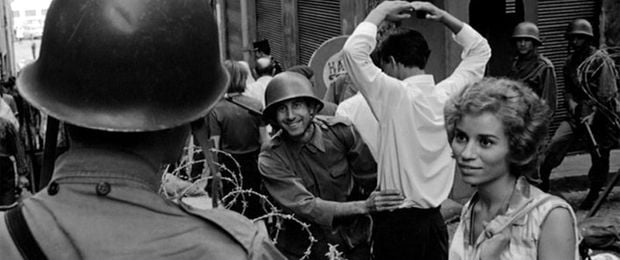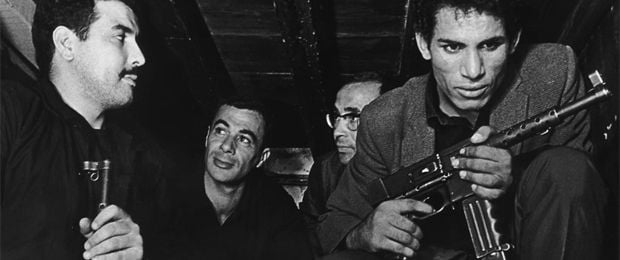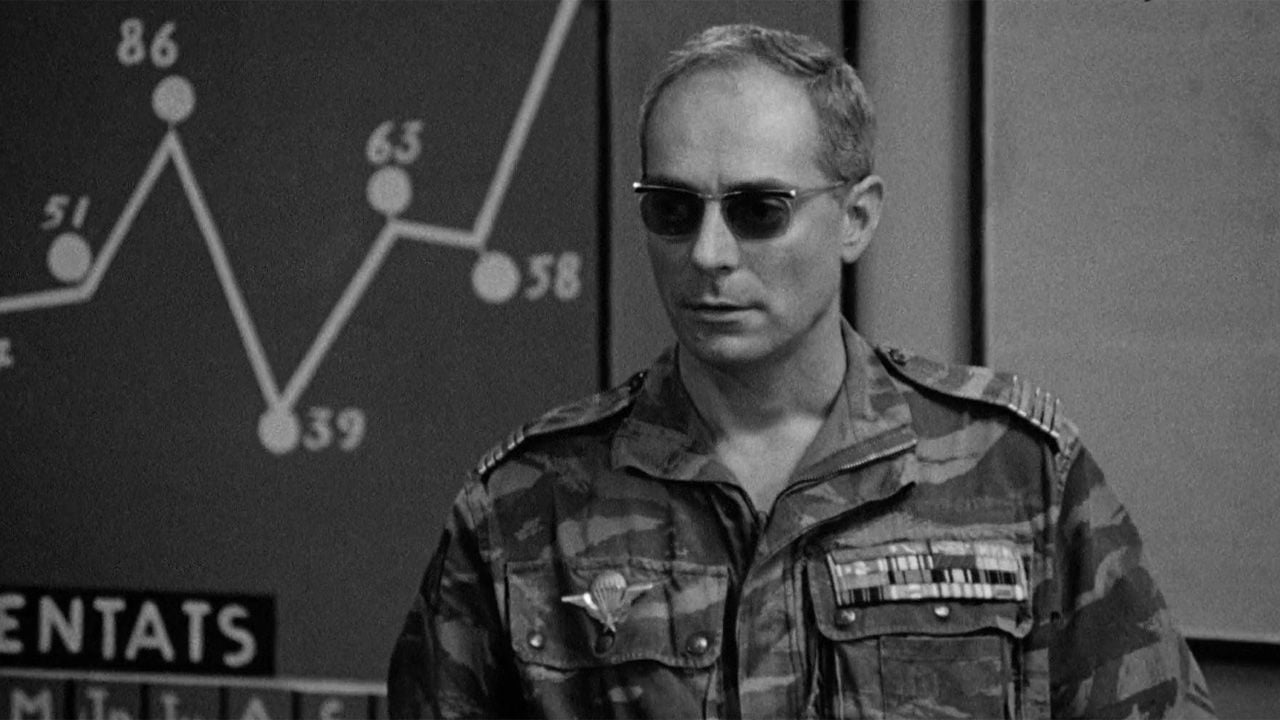“The Battle of Algiers”, released in 1966, is one of the most important and influential political films of the 20th century. Its almost documentary rigor on urban guerrilla techniques is such that the Pentagon was projected the film in 2003.
Despite a golden lion in Venice, a price of criticism in Cannes and three quotes from the Oscars, the battle of Algiers, prohibited from dissemination in theaters in France in 1966, had to wait until 1971 to obtain its operating visa. And still, fleetingly. Following pressures and threats, it was quickly removed from screens and will become invisible for more than thirty years.
Considered one of the most important and influential political films in the 20th century, he traces the country's long armed struggle from the 1950s to his release. Nothing is spared the spectators, between attacks, reprisals and tortures, in a work turned on the very places where the events took place.
The battle of Algiers is the summit of the artistic career of a politically marked filmmaker, Gillo Pontecorvo, which he had started through the documentary. A training as a documentary maker who transpires in this film with a stripped and nervous style, reinforced by the sublime black and white photograph of Marcello Gatti, recalling the strips of cinematographic news which were projected in pre-program at the time in the dark rooms.
“You say that I am a terrorist, but I say that I am a liberator”
If history and fiction are intimately linked in the film, in particular because the latter is born thanks to the competition of the Algerian authorities, represented in the person of Saadi Yacef, director of Casbah films, and especially former FLN political leader for the Algiers area playing his own role in the film, the battle of Algiers is however far from being a pure propaganda film.
A film that has also deeply nourished and irrigated the cinematographic material of renowned filmmakers, like Spike Lee, Oliver Stone, or Steven Soderbergh, to name a few. “What you feel about this film depends on which political side you lean. It is even very delicate. You, you say that I am a terrorist. But I say that I am a liberator” commented Spike Lee in An exciting interview in 2004conducted on behalf of the editor Criterion.
“I stole a lot of things at the battle of Algiers, I am not ashamed to say, to make them mine. On the preparation of my film TrafficI asked them to look at around me French Connection and the battle of Algiers “ Soderbergh said in this same interview.
Adding: “This film has everything that a filmmaker could desire: it works on a purely cinematographic level, documentary, politically, its visual effects which have a visceral impact on spectators”.

Carlotta Films
“I wanted to explain these urban guerrilla warfare tactics”
This film is also the acme of an immense screenwriter, Franco Solinas, who did not hide his communist sympathies. “”I was intrigued by the mechanism of the fight against colonialism and in particular by its manifestation in Algiers through tactics of urban guerrilla warfare.
I wanted to explain these tactics, the details of their operation, by dismantling them from the inside to show how the mechanisms work. You could say that our goal was not guerrilla warfare for the show, but the use of the show to teach guerrillas ” he said in A famous interview Posted in 1972. Solinas did not think so well: the film will notably be dissected by radical militants of Black Panthers …

Carlotta Films
The Pentagon passes the film with a magnifying glass
It is also precisely this point which aroused a lively curiosity to the highest peak of the military hierarchy in the United States. The Pentagon was indeed projecting the film in 2003, to dissect this cinematographic manual of guerrban, counterinsurgation and asymmetrical war tactics. The date is obviously no coincidence: it is that year that the administration of President Bush Jr embarked on the invasion of Iraq …
The projection was thus organized on August 27, 2003, only a few months after the invasion of Iraq, within the Directorate for Special Operations and Low-Innsity Conflict; A sub-departure of the Secretariat for Defense.
On a flyer distributed before the screening, this was written:
“How to win the battle against terrorism and lose the war of ideas. Children shoot on soldiers at close range. Women pose bombs in cafes. Soon, the whole of the Arab population ignites. That reminds you of something? The French have a plan. He succeeds in a tactical level, but fails on the strategic level. To understand why, come and attend a rare projection of this film”.
According to Michael Kaufman, journalist at New York Times,, “Pentagon projection has attracted a more professionally detached audience, made up of around forty officers and civilian experts who were invited to reflect and discuss implicit questions at the heart of the film – the problematic but attractive efficiency of brutal and repressive means in the fight against clandestine terrorists in countries such as Algeria and Iraq”.
The journalist added: “It seems that the objective of projection was to cause a discussion on the usefulness of torture and other methods of state repression in Iraq. More than a decade later, despite the generalized appeal to torture and other vicious methods, the Iraqi insurrection has transformed into Daesh. The insurrection is “not very”.

Carlotta Films
“This film is really a case of study” commenting Michael A. Sheehan, former coordinator of the State Department for the fight against terrorism, in an exchange organized by the ABC News channel and led in 2004 with Richard A. Clarke, former national coordinator for security and the fight against terrorism and author of Against All Enemies: Inside America's War on Terror.
“There is nothing new to what is happening in Iraq on these techniques, already seen 300 years ago. We must build a strategy based on principles, which then become political and then infused in the various decision -makers of our country. The teachings of this film are precious for that”. It is unknown how it could effectively infuse in the American state apparatus. But we know on the other hand that the consequences of this preventive war Led in Iraq is always felt, in a region still on fire and blood …
Discover more from Daily Hind News
Subscribe to get the latest posts sent to your email.



